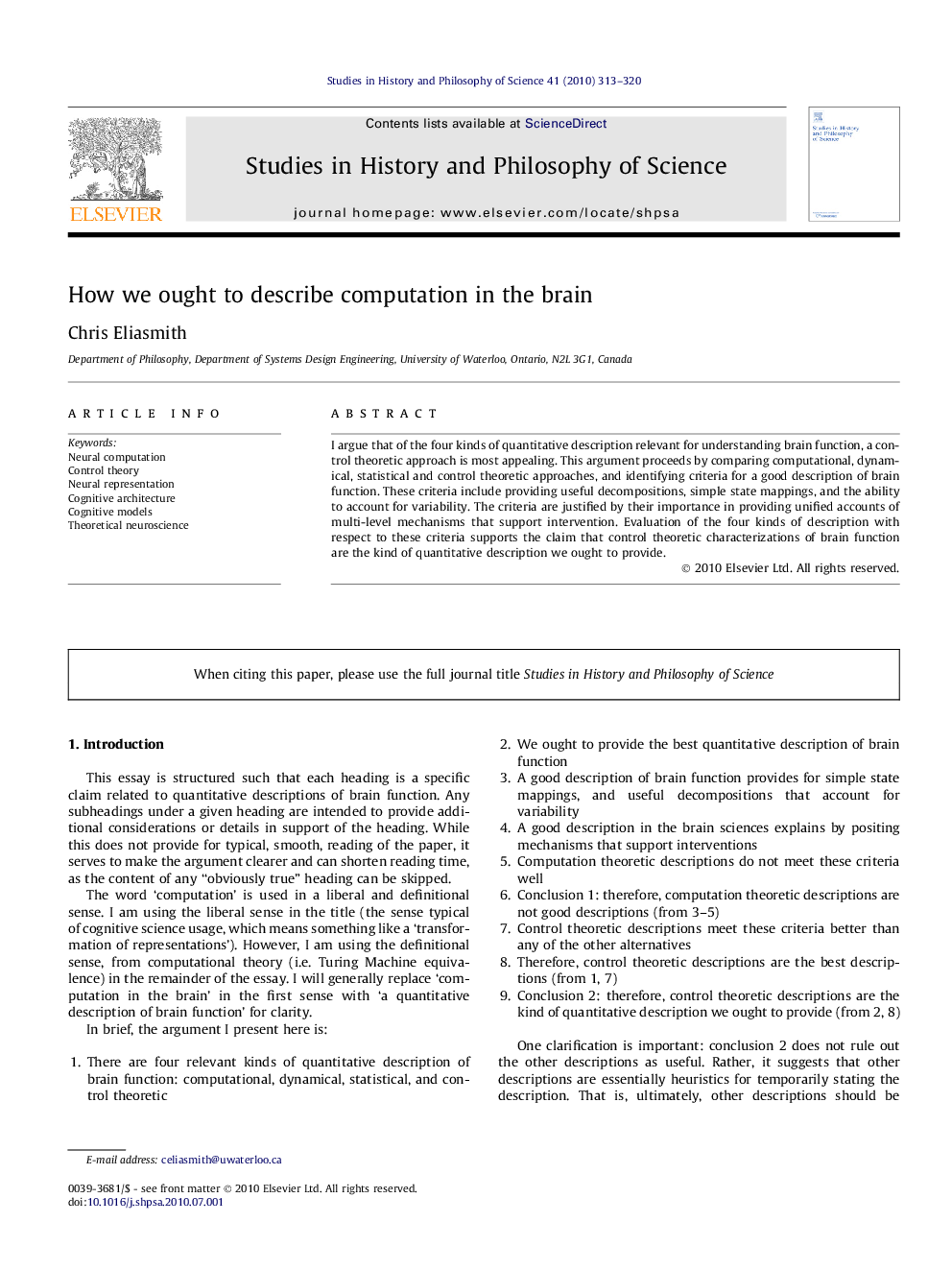| Article ID | Journal | Published Year | Pages | File Type |
|---|---|---|---|---|
| 1160519 | Studies in History and Philosophy of Science Part A | 2010 | 8 Pages |
I argue that of the four kinds of quantitative description relevant for understanding brain function, a control theoretic approach is most appealing. This argument proceeds by comparing computational, dynamical, statistical and control theoretic approaches, and identifying criteria for a good description of brain function. These criteria include providing useful decompositions, simple state mappings, and the ability to account for variability. The criteria are justified by their importance in providing unified accounts of multi-level mechanisms that support intervention. Evaluation of the four kinds of description with respect to these criteria supports the claim that control theoretic characterizations of brain function are the kind of quantitative description we ought to provide.
